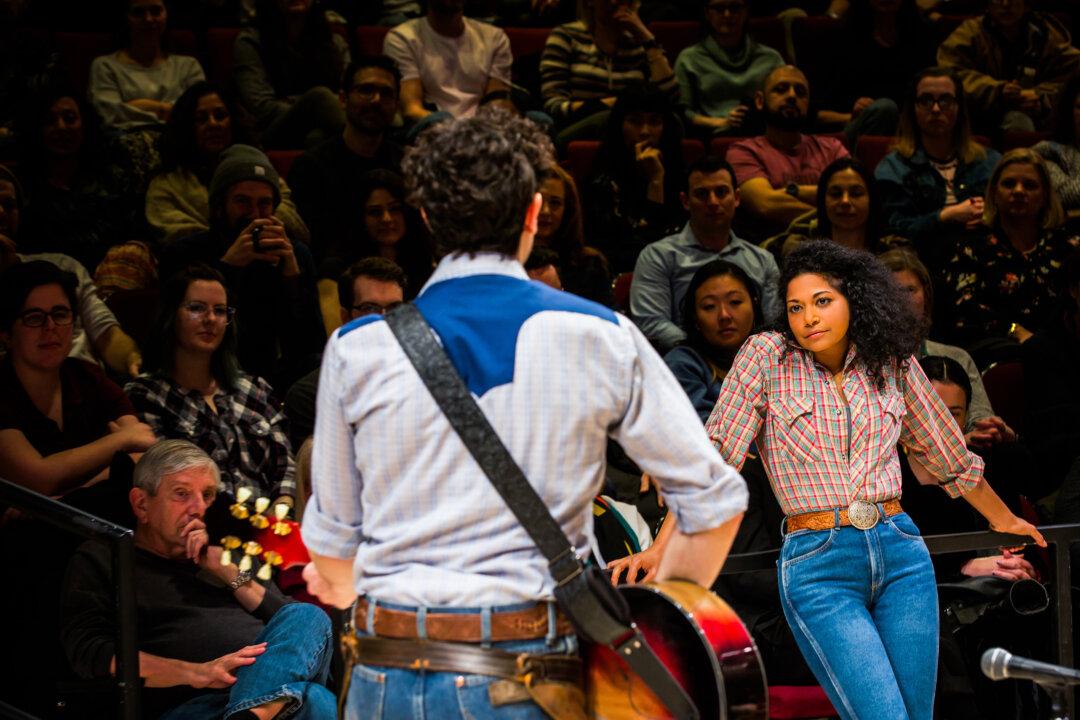NEW YORK—The coolest new show on Broadway in 2019 is the revival of a 1943 musical. Social media mavens have hashtagged this production #SexyOklahoma. This, despite traditionalists who think the Rodgers and Hammerstein Organization should be ashamed for “giving permission to produce this gimmicky travesty.”
I sat next to a couple of boys who didn’t look old enough to cut up their own meat. I ventured to ask them what the appeal of the current incarnation of “Oklahoma!” is.






